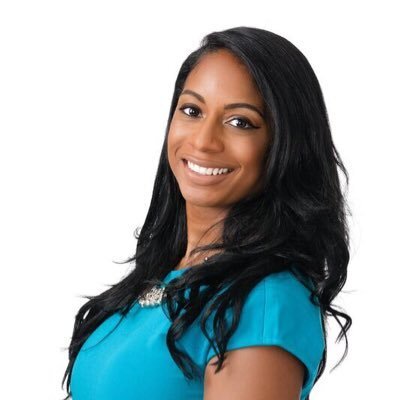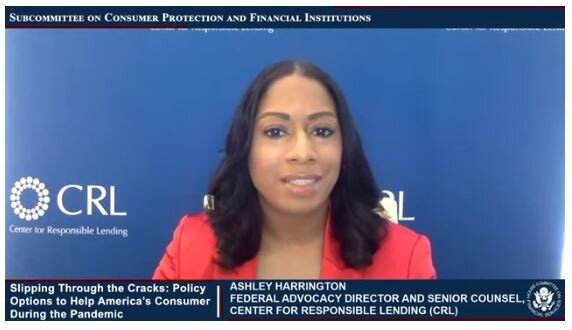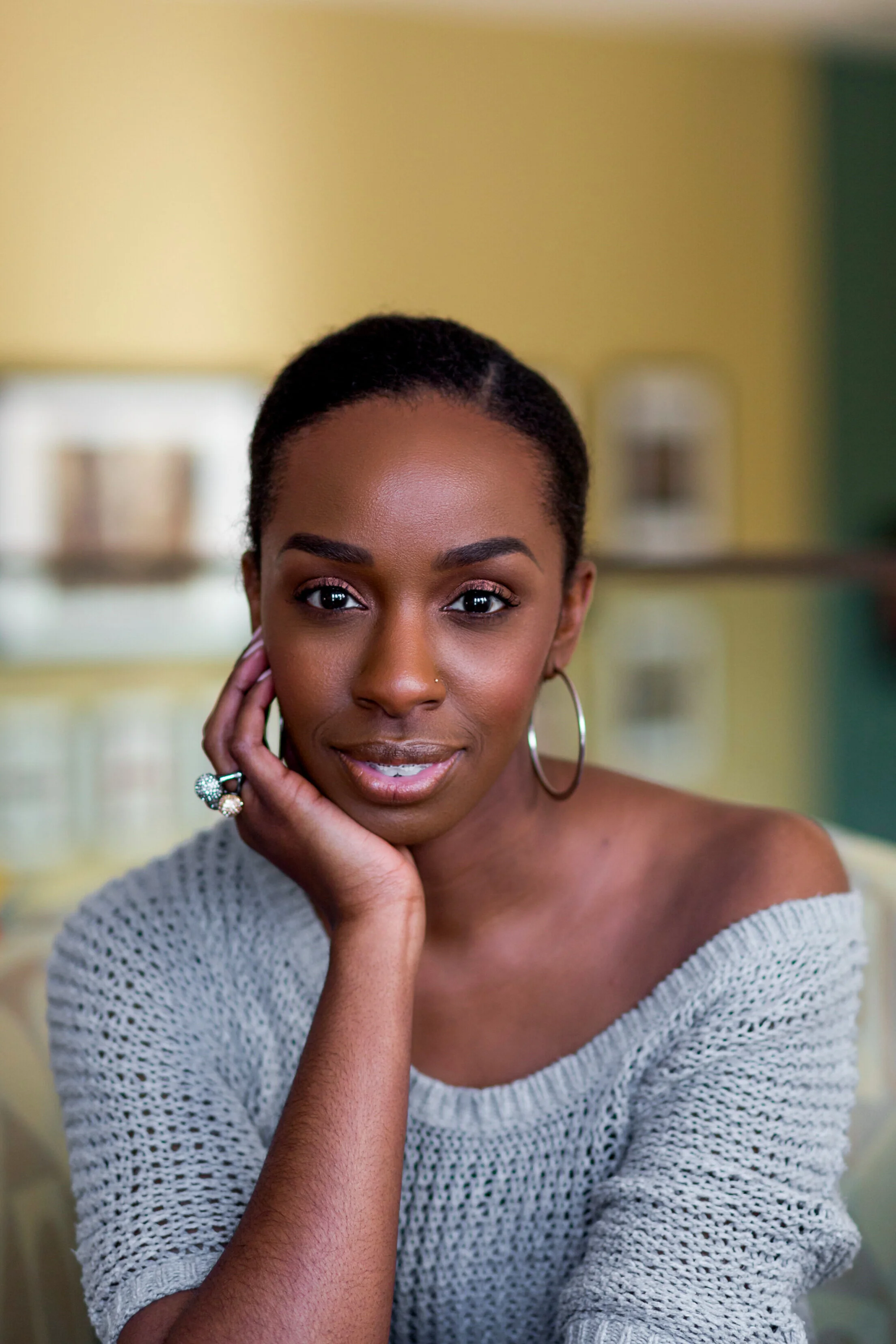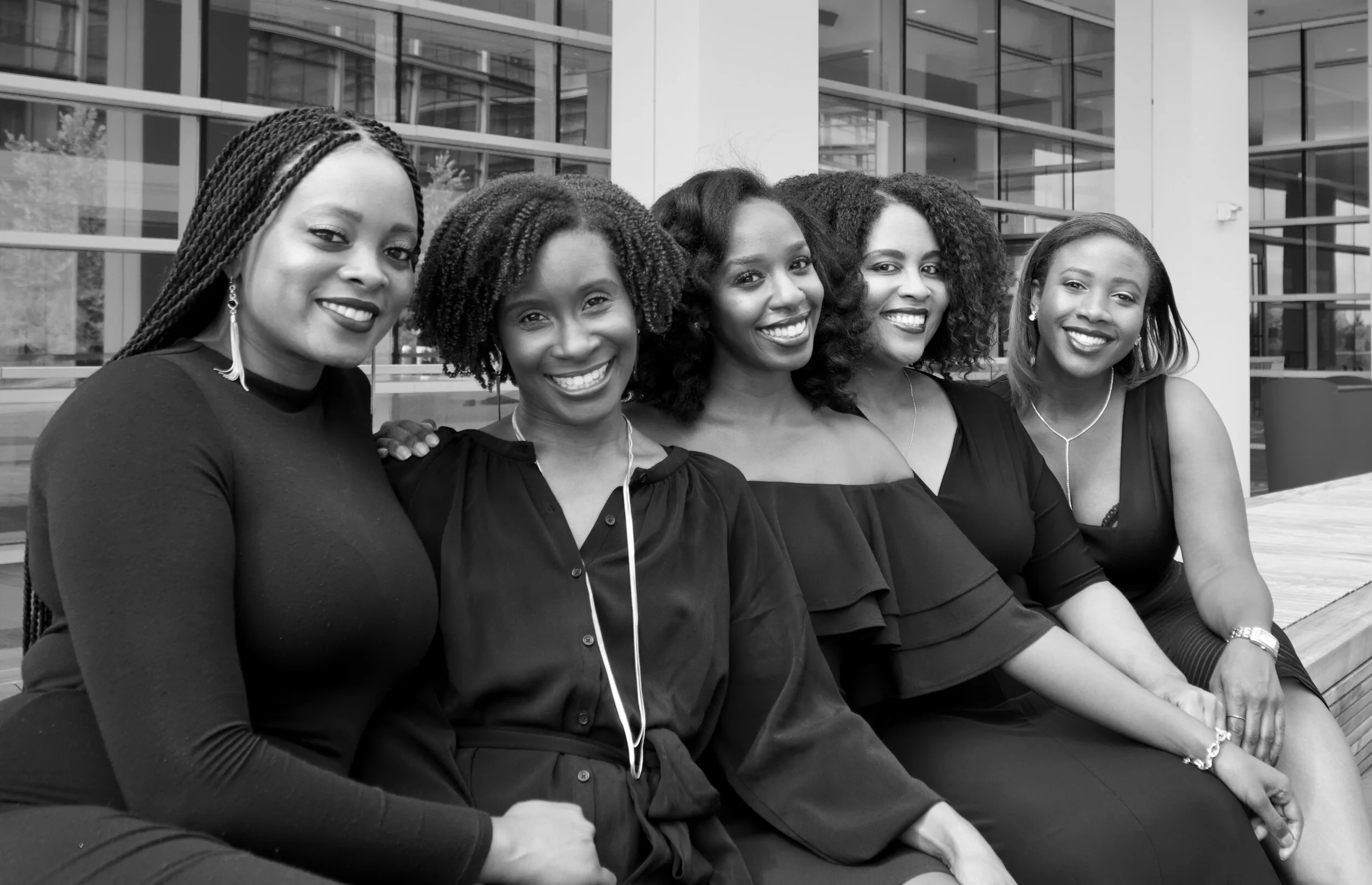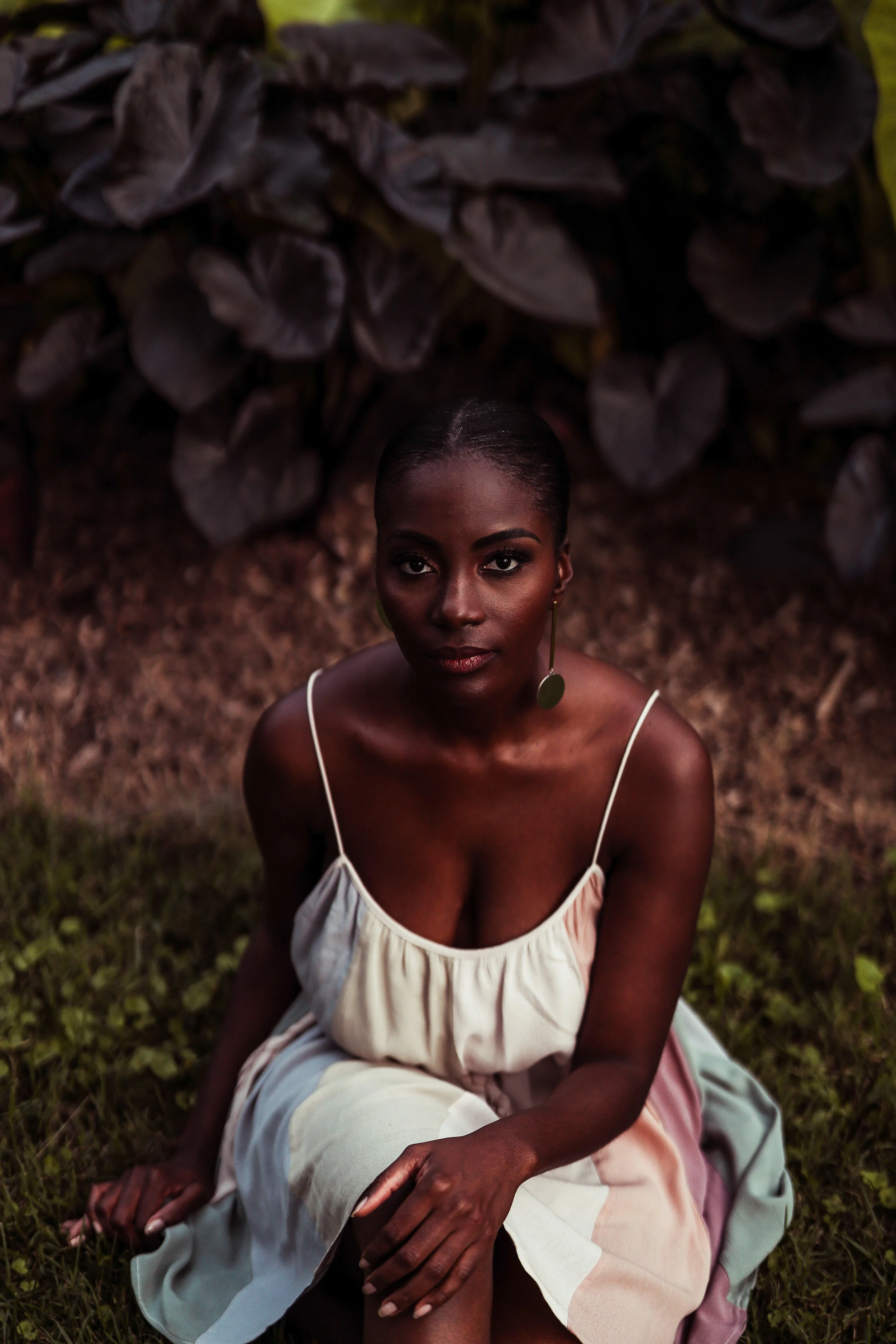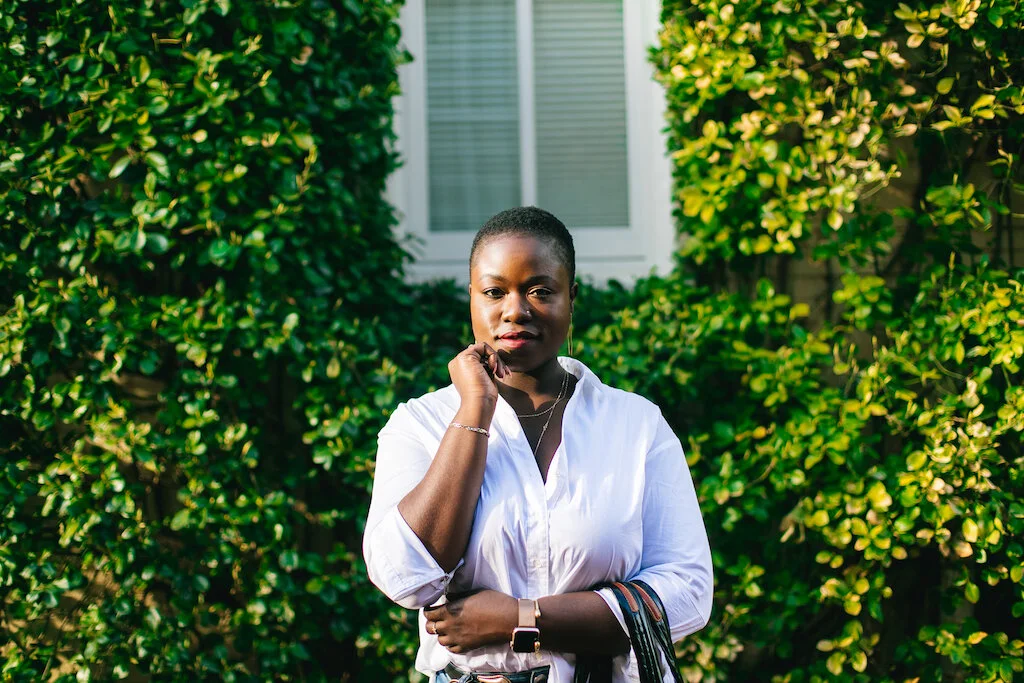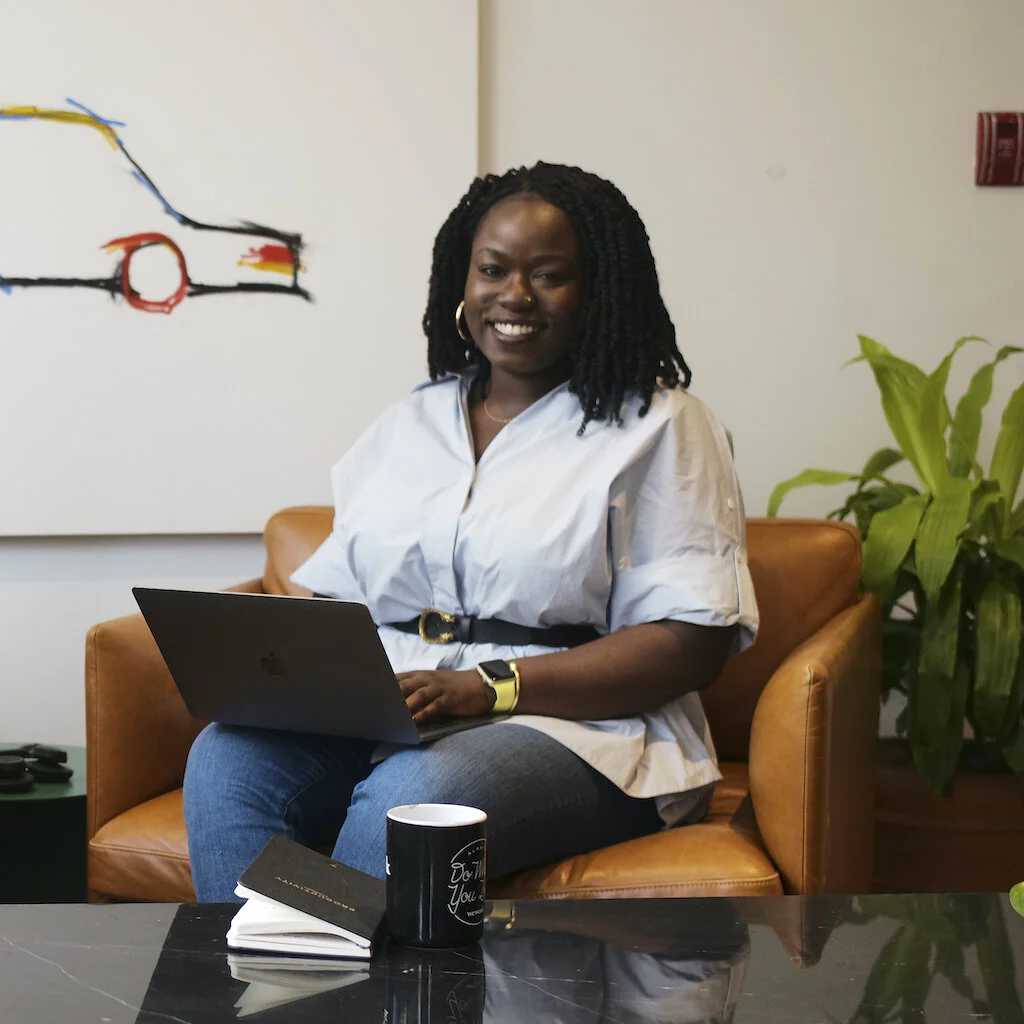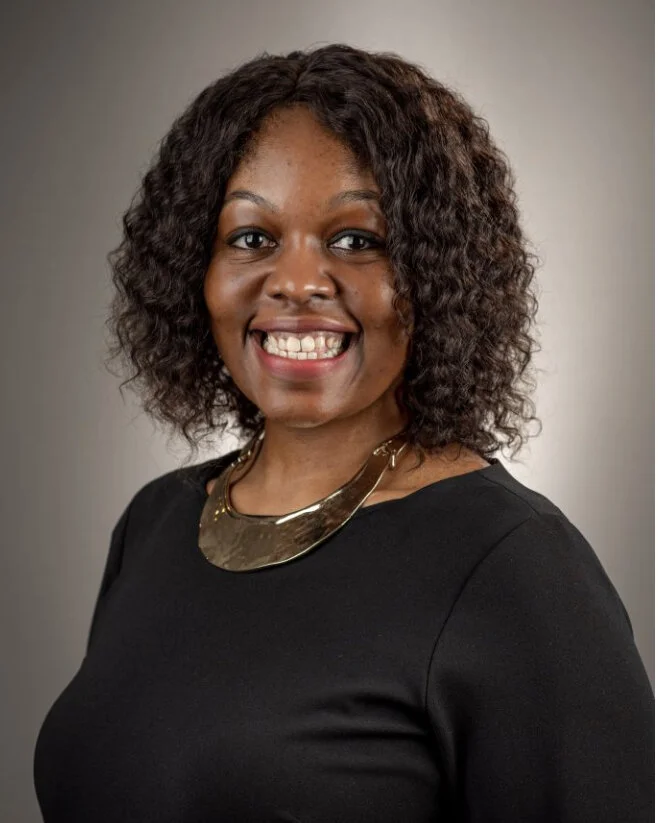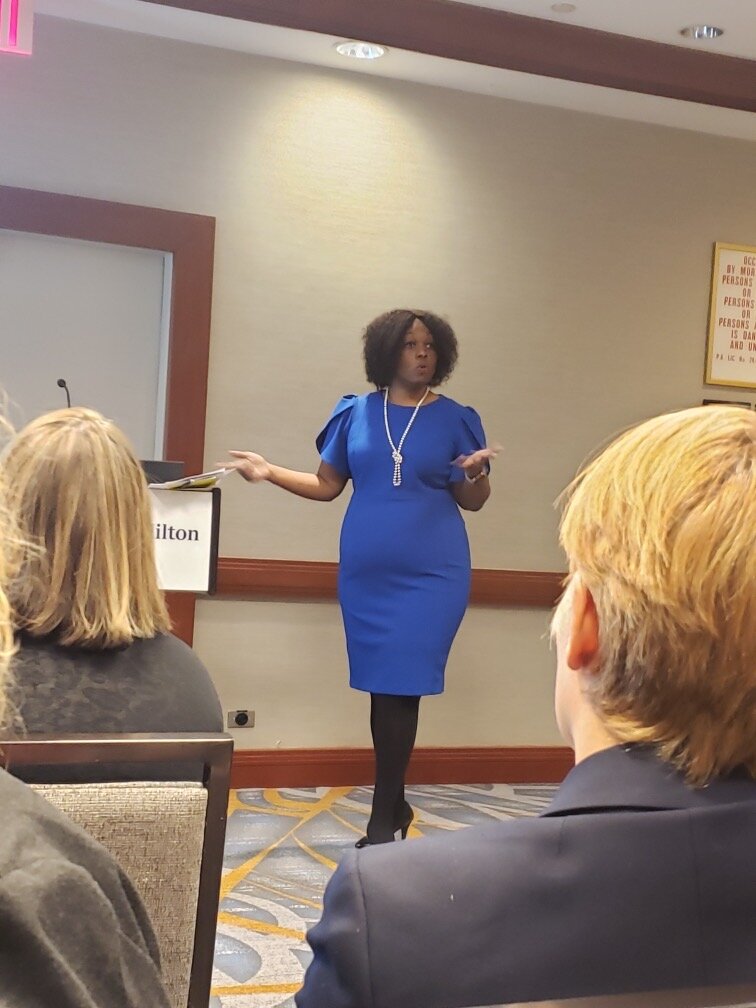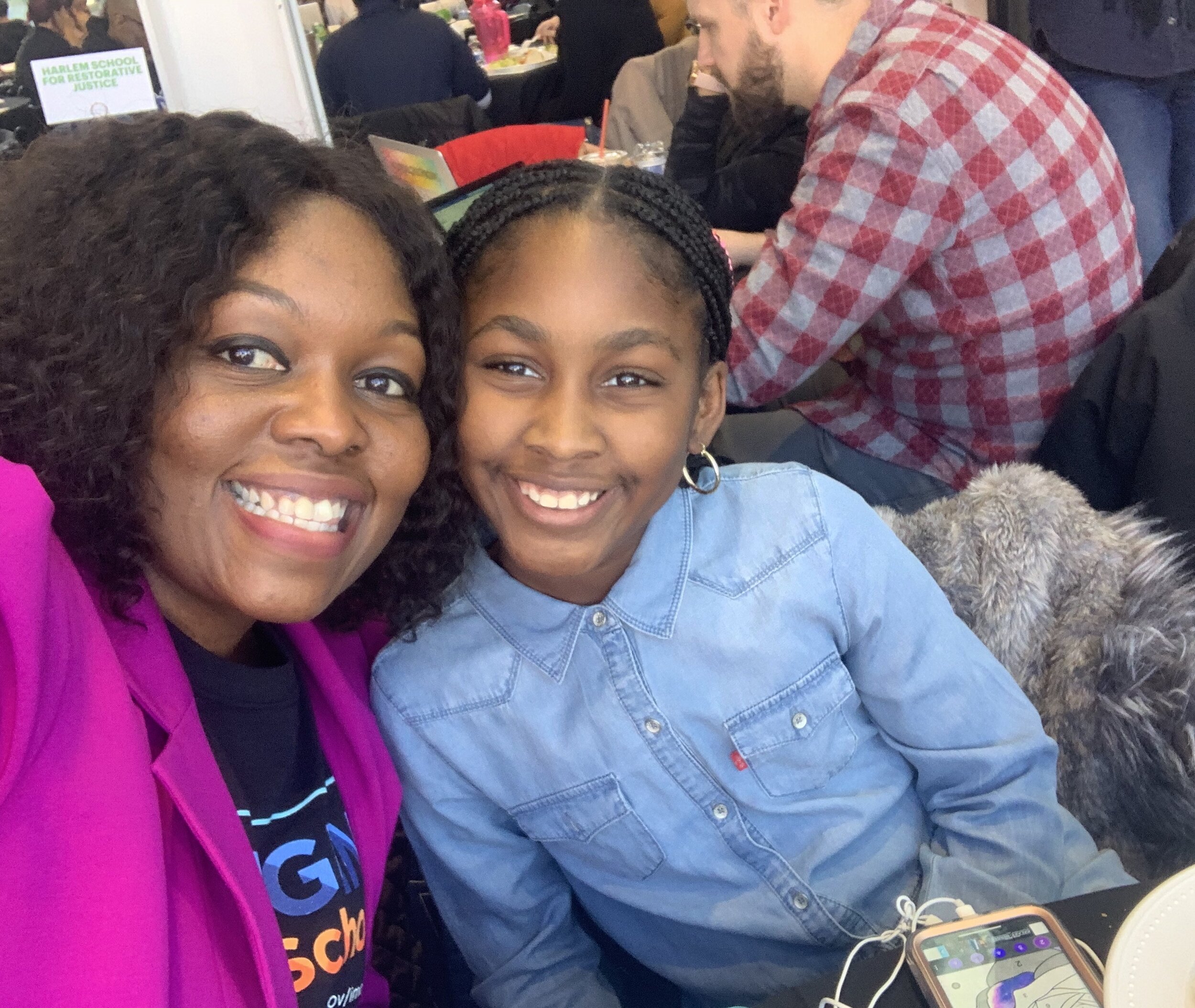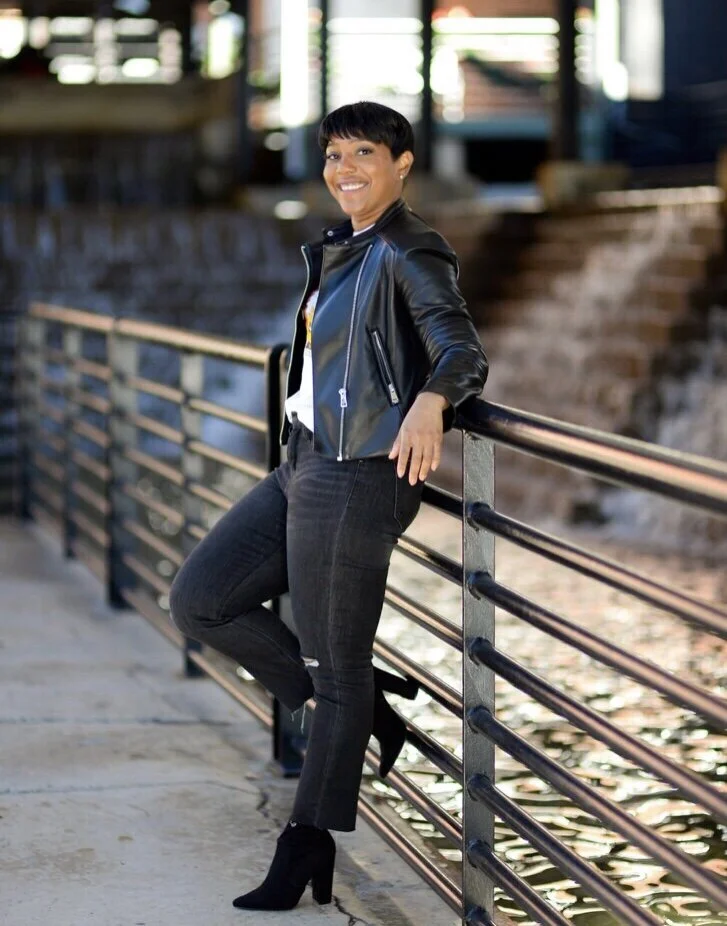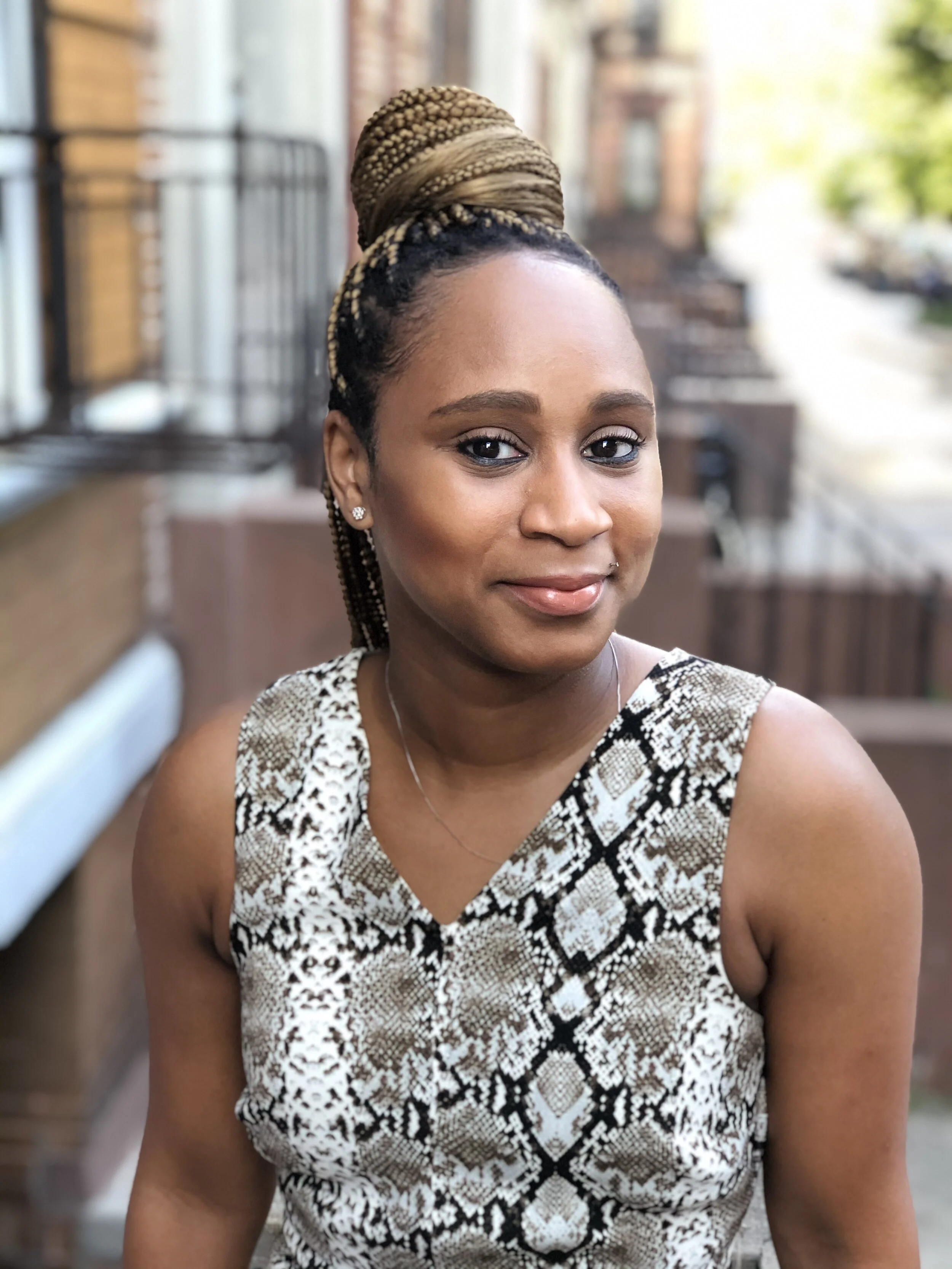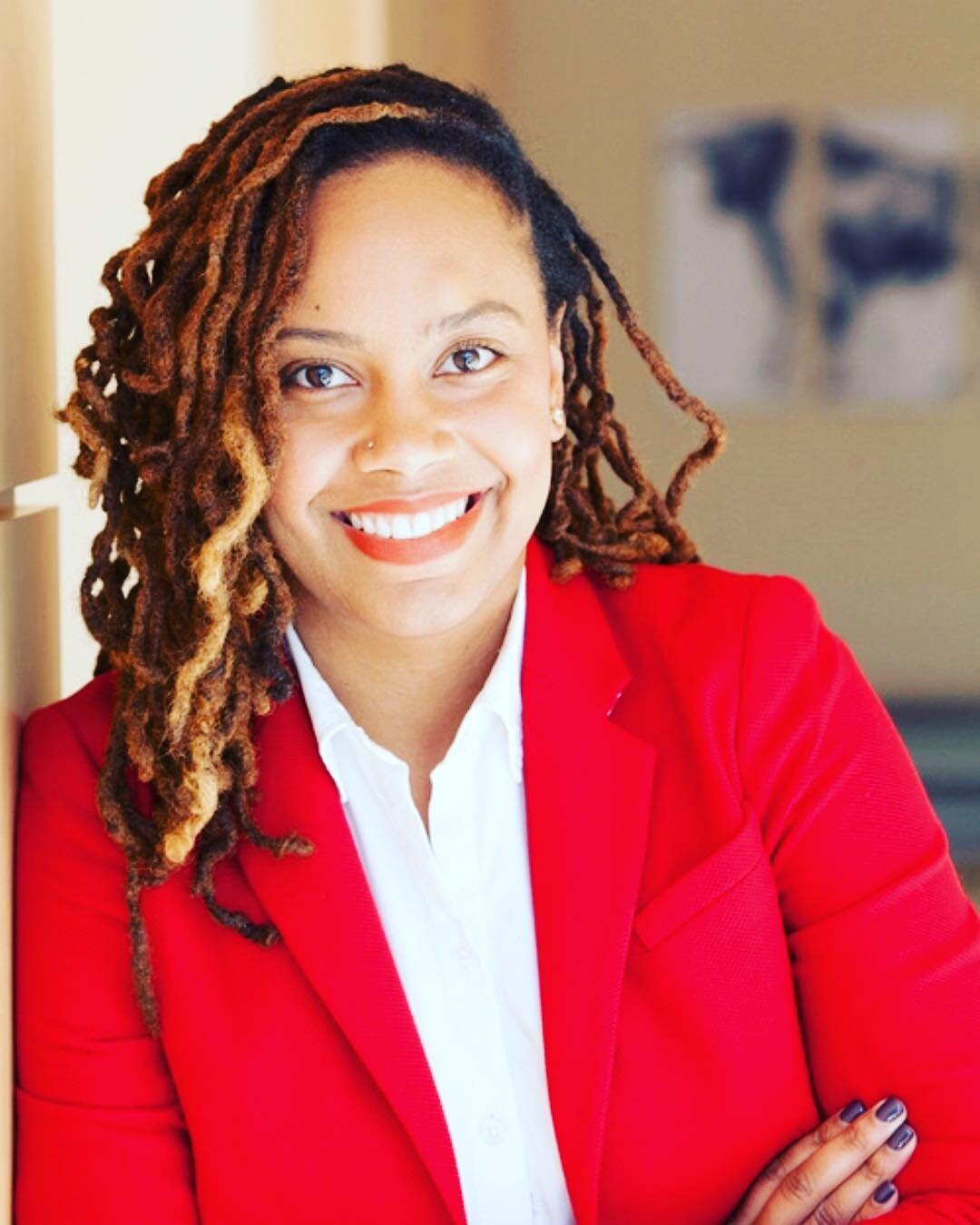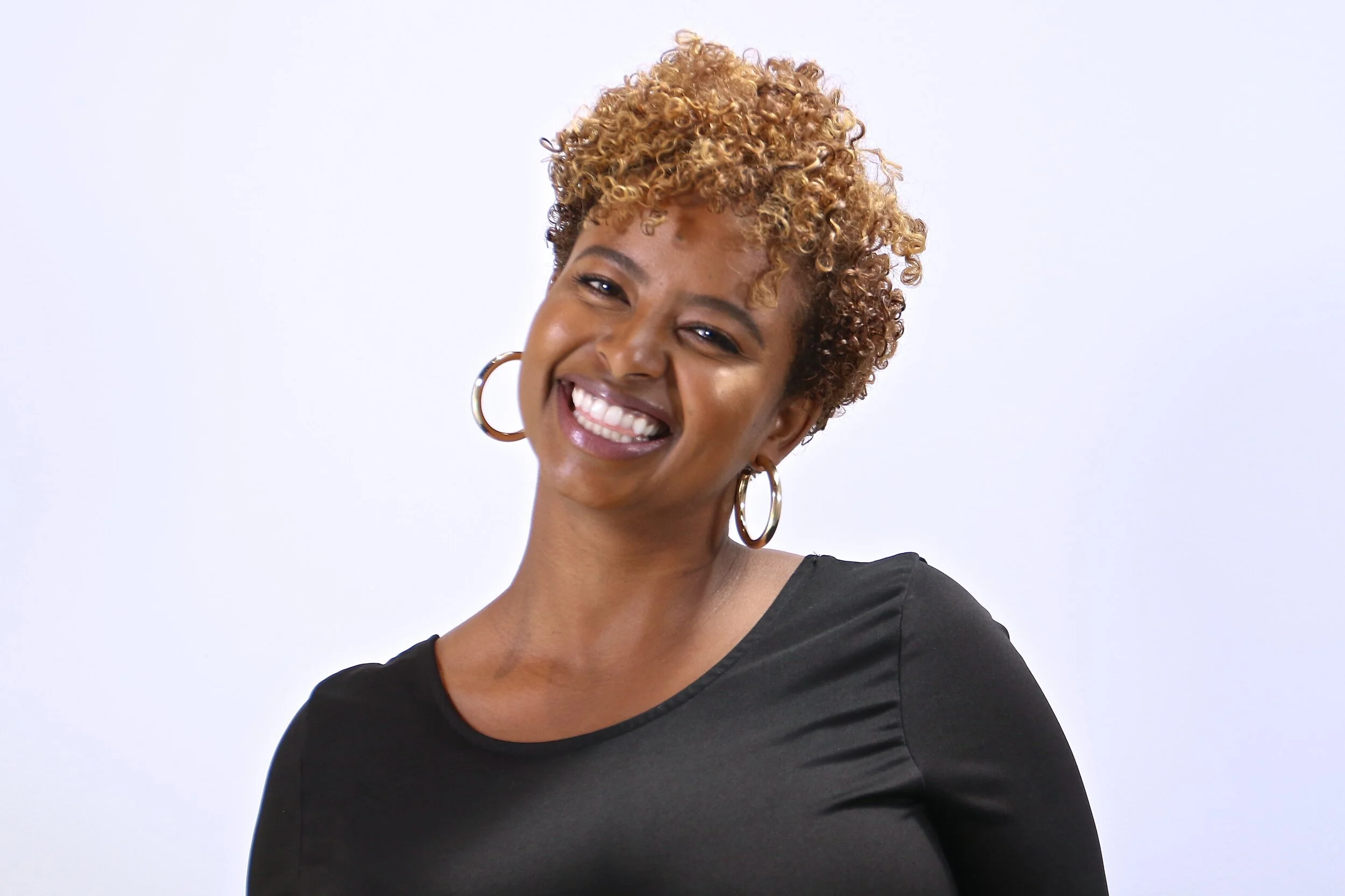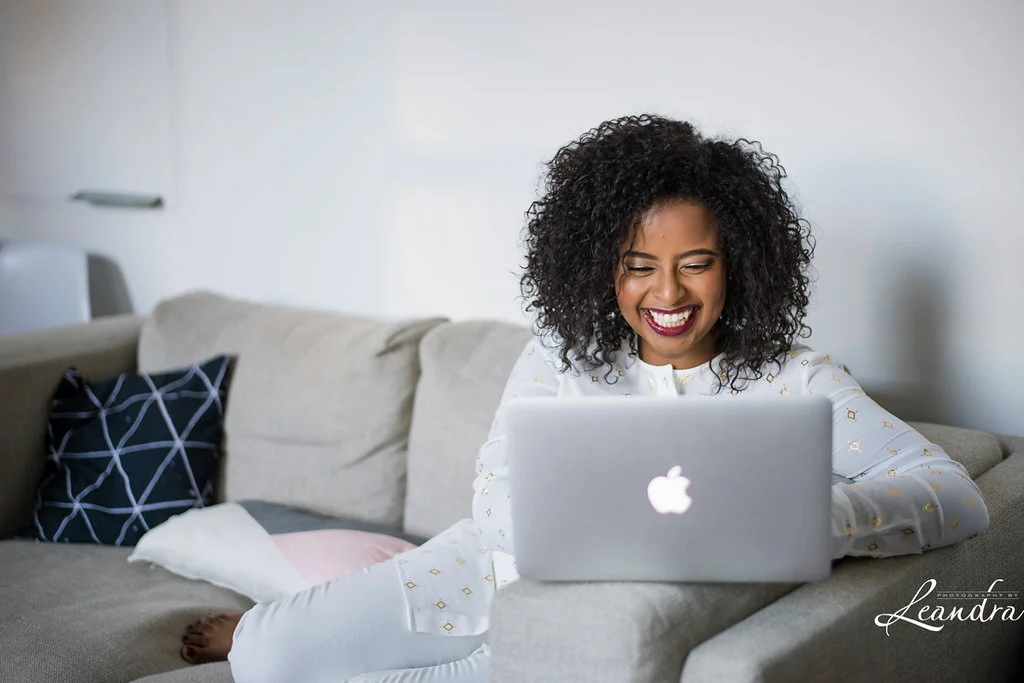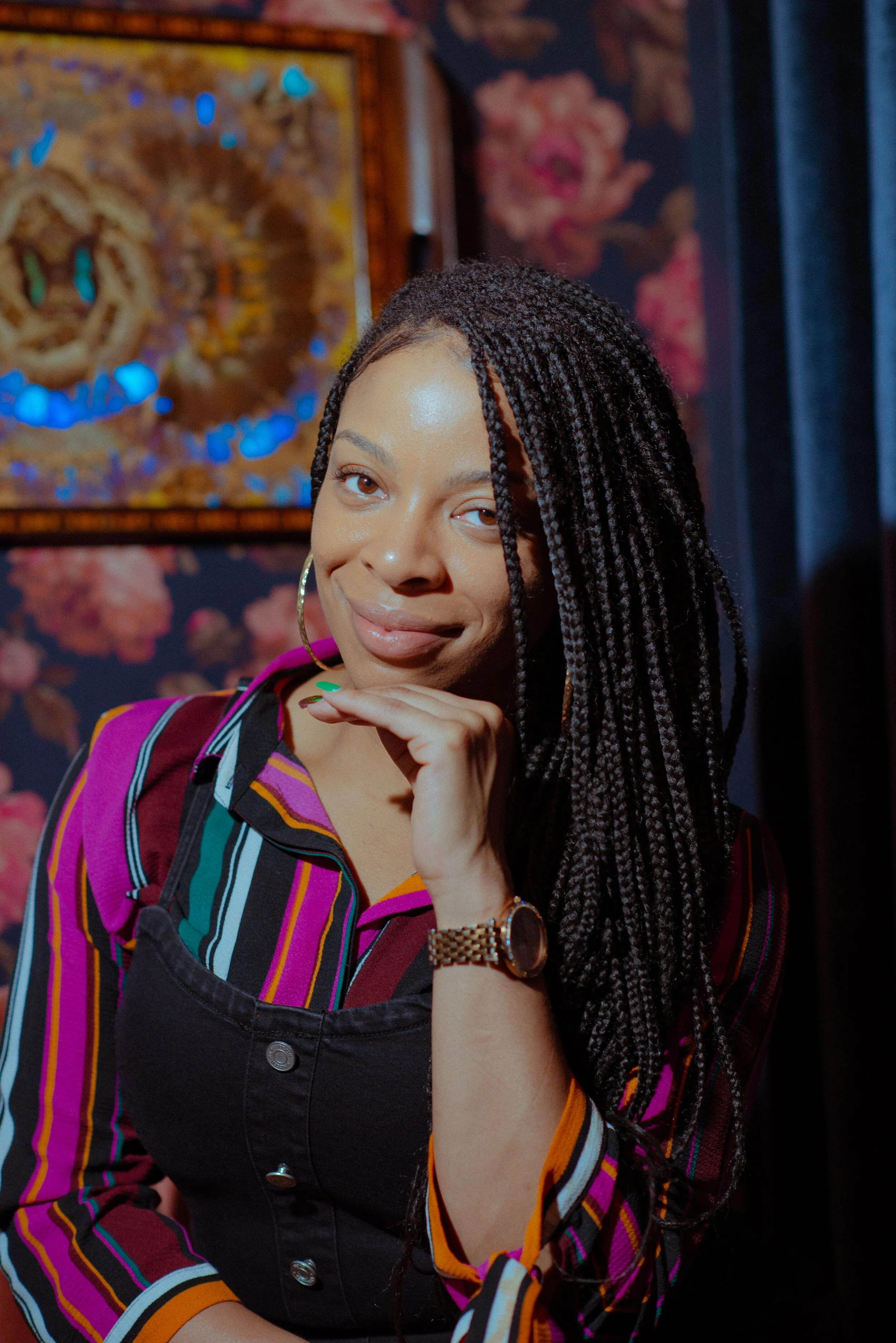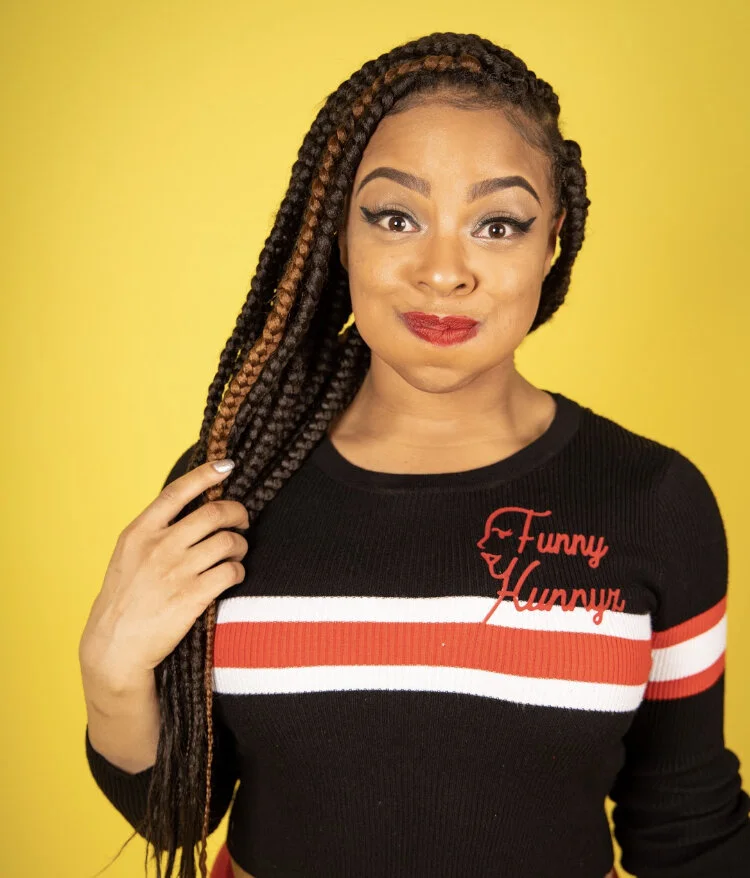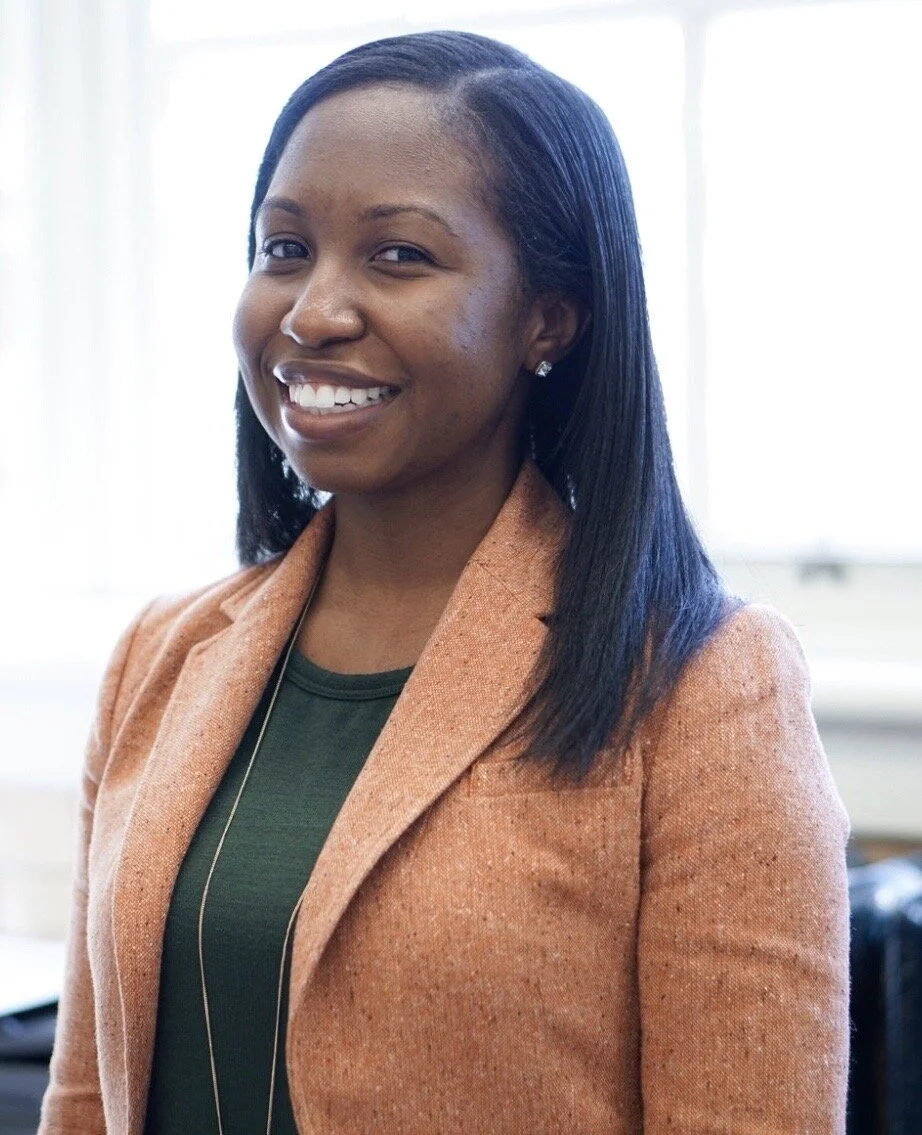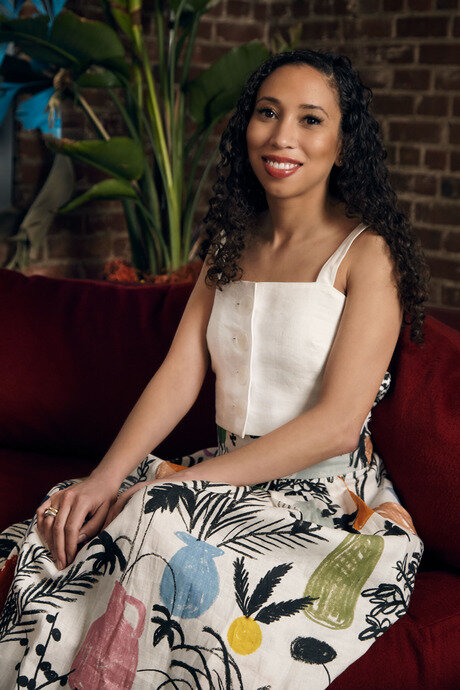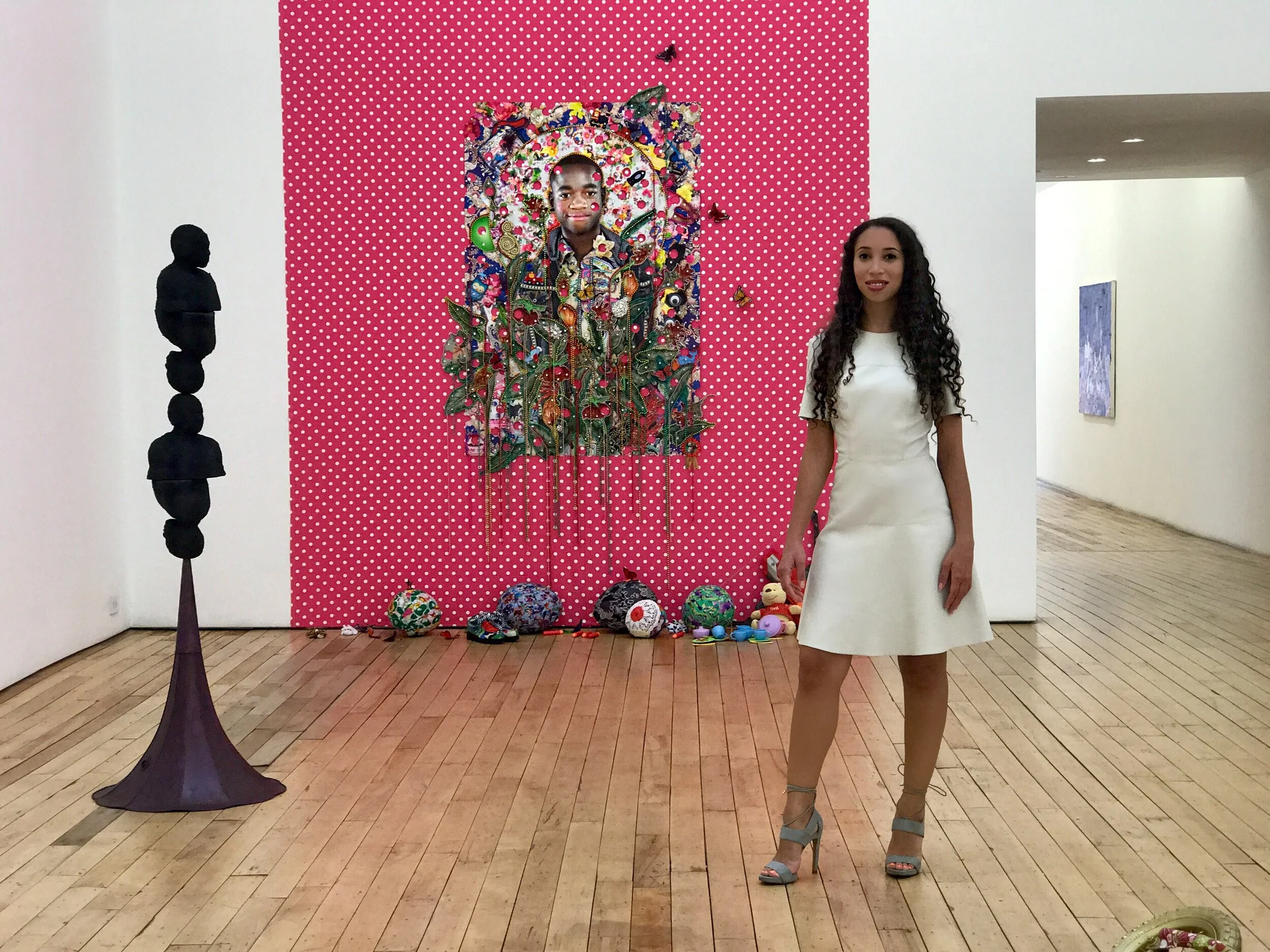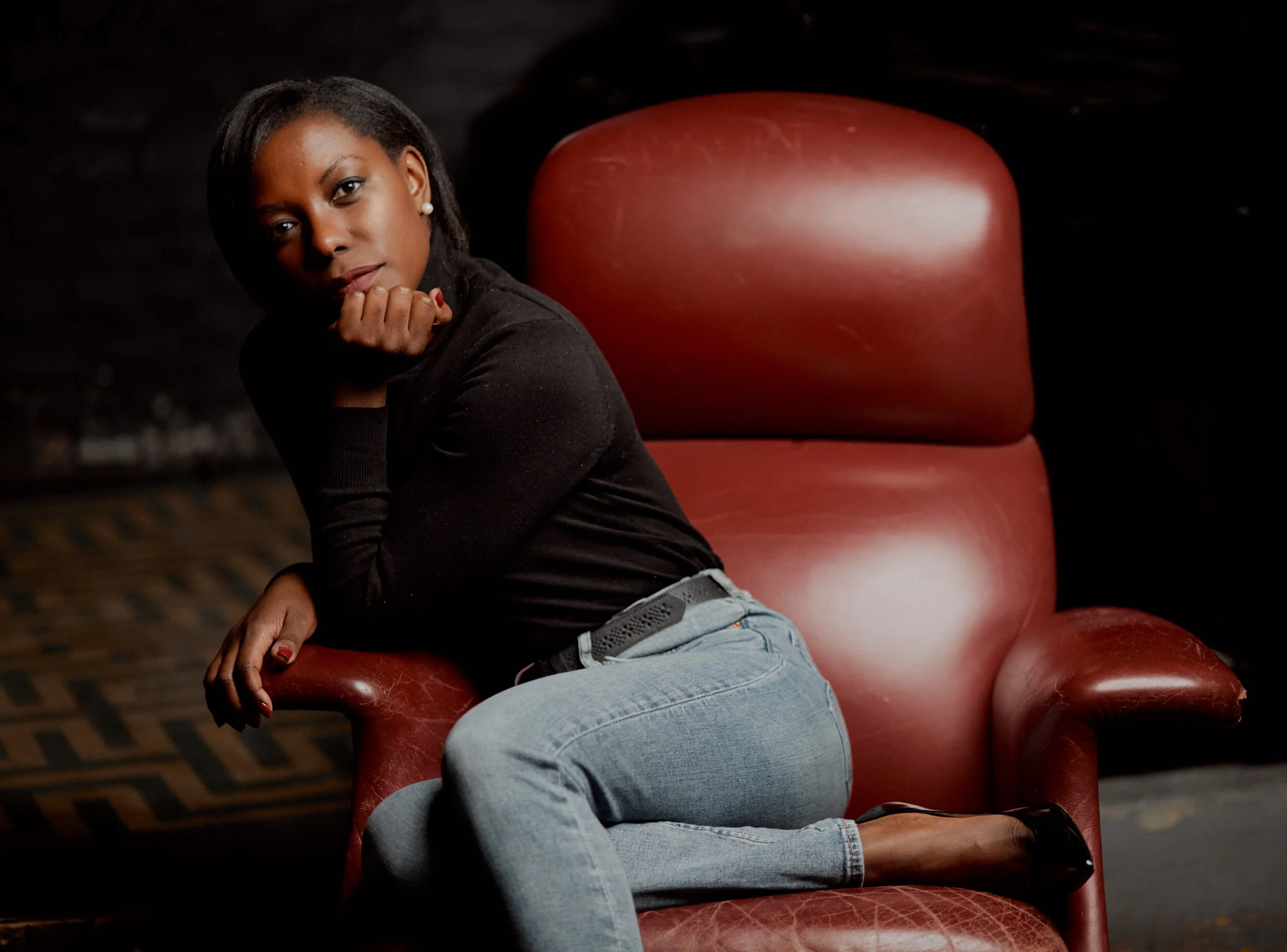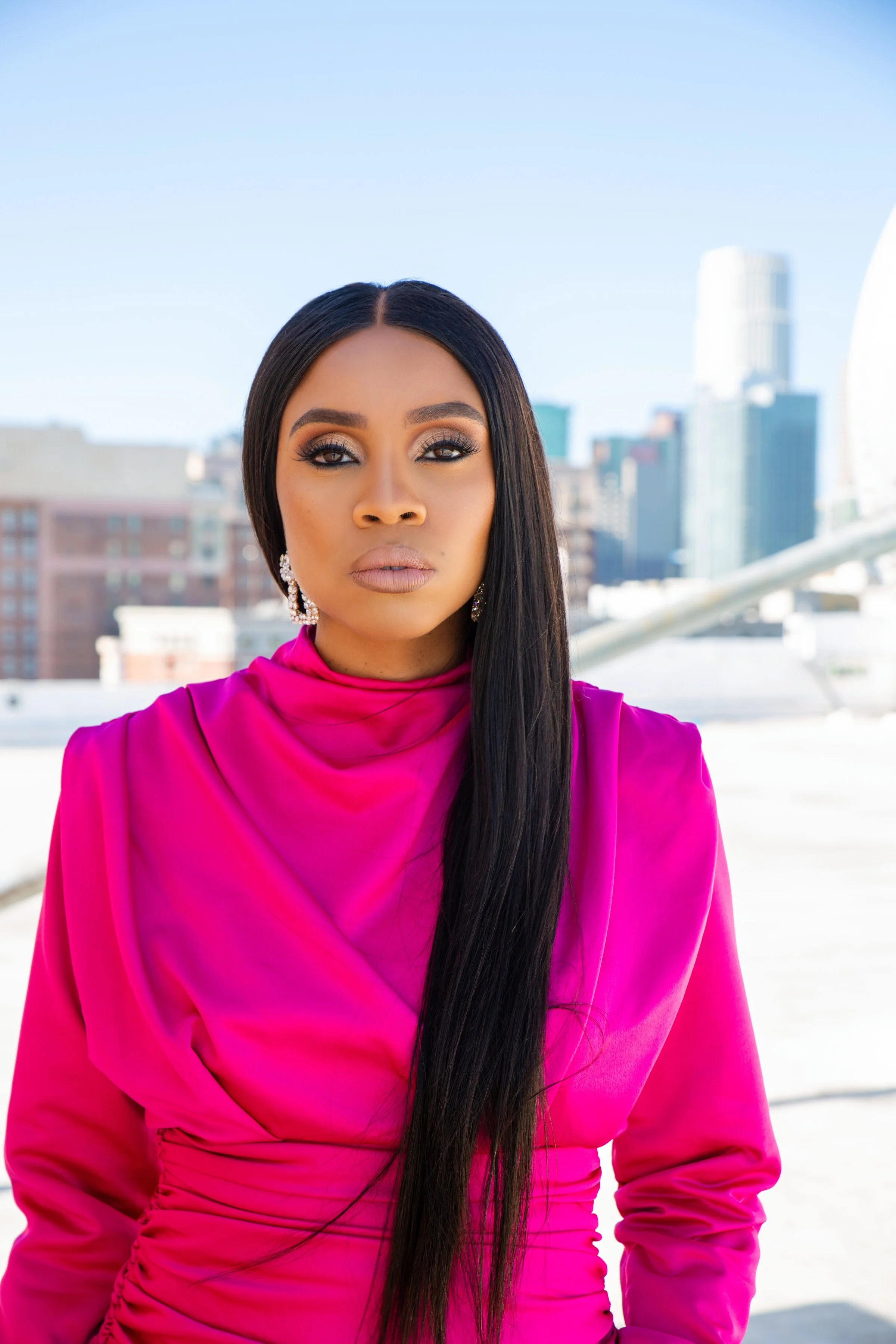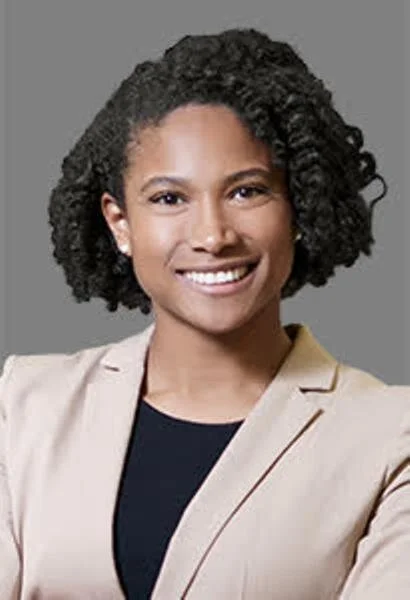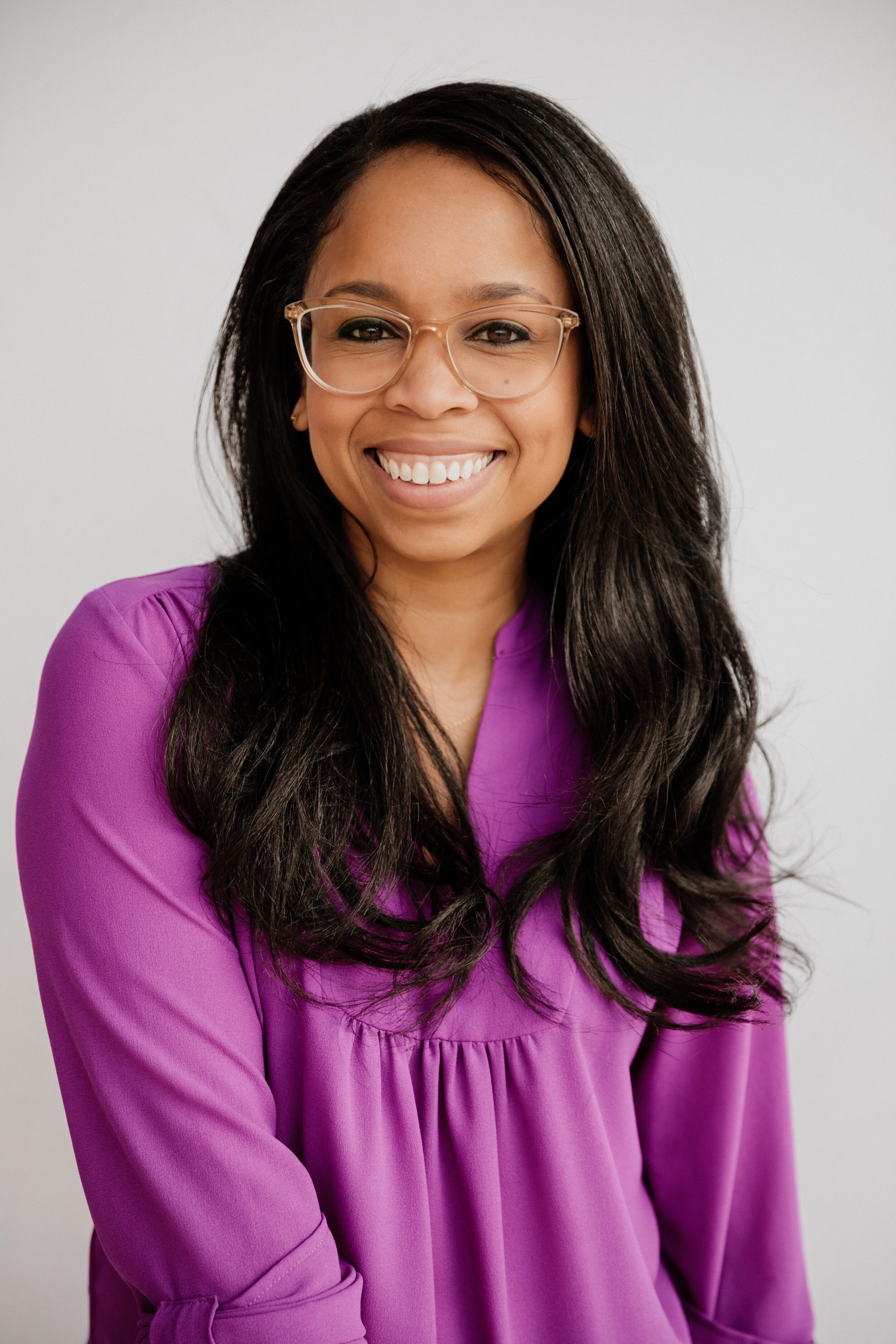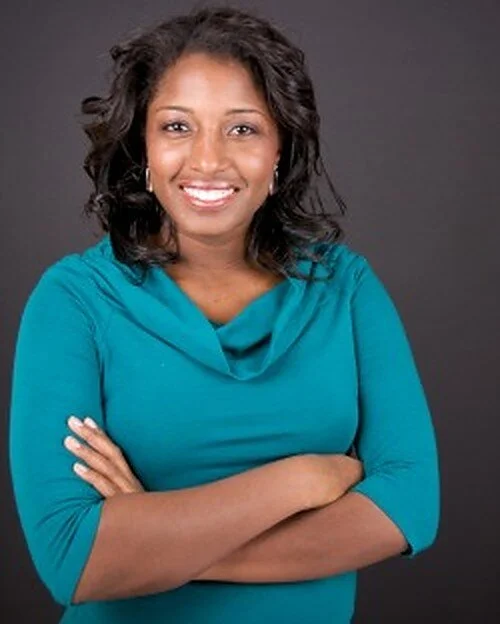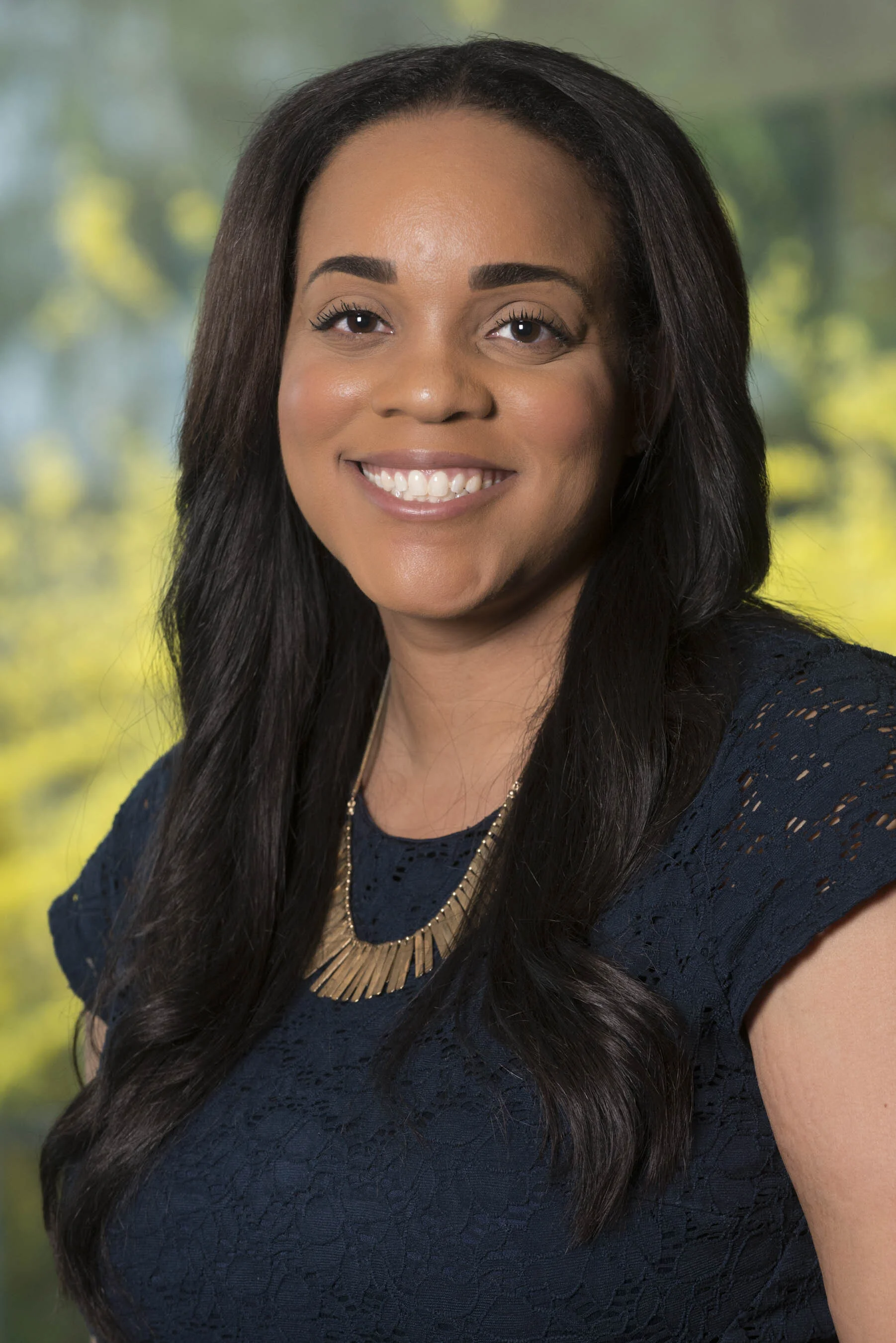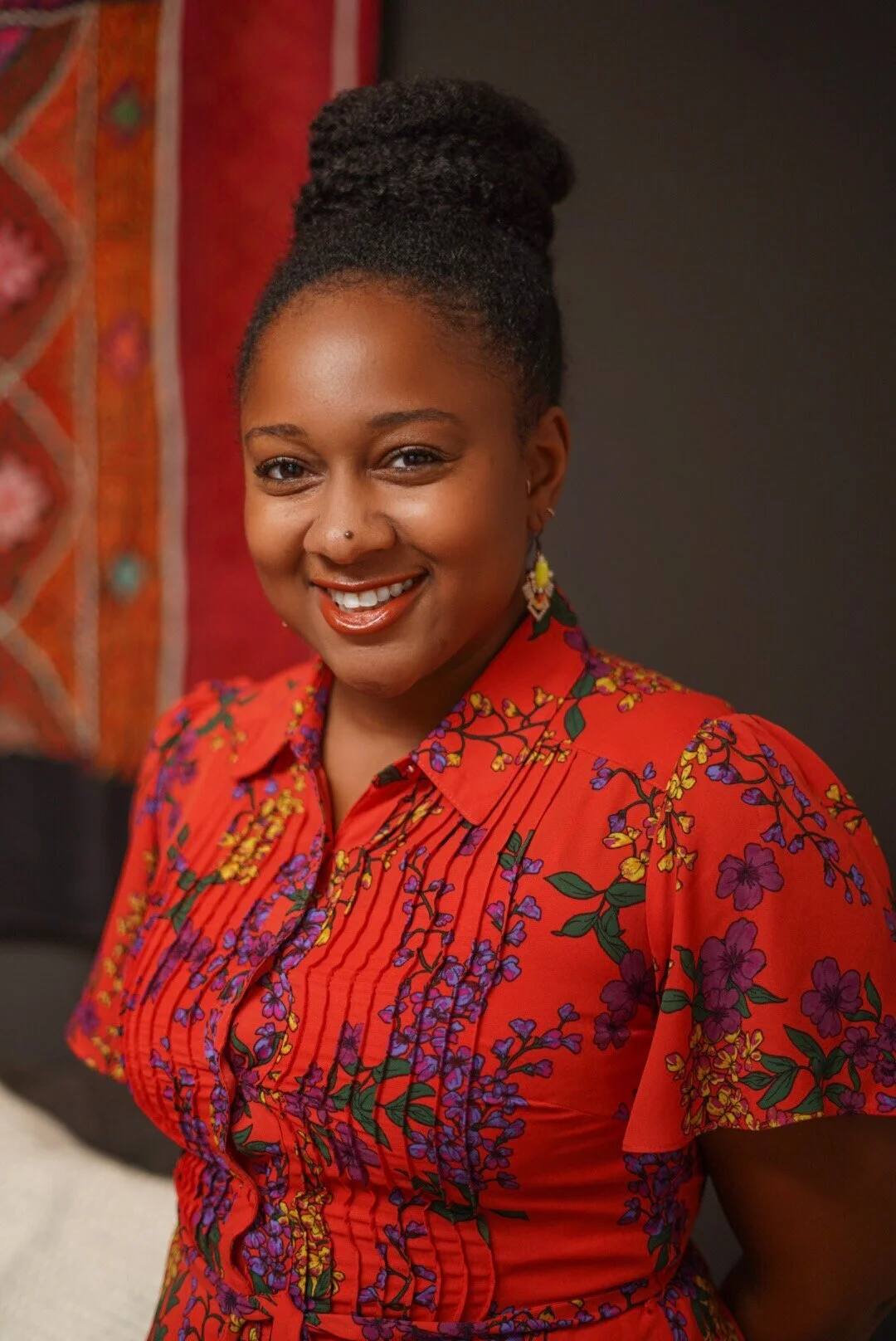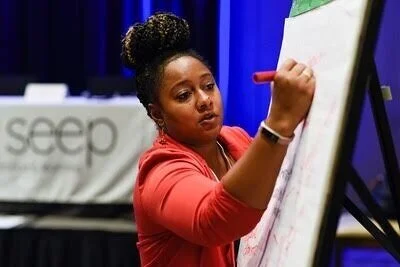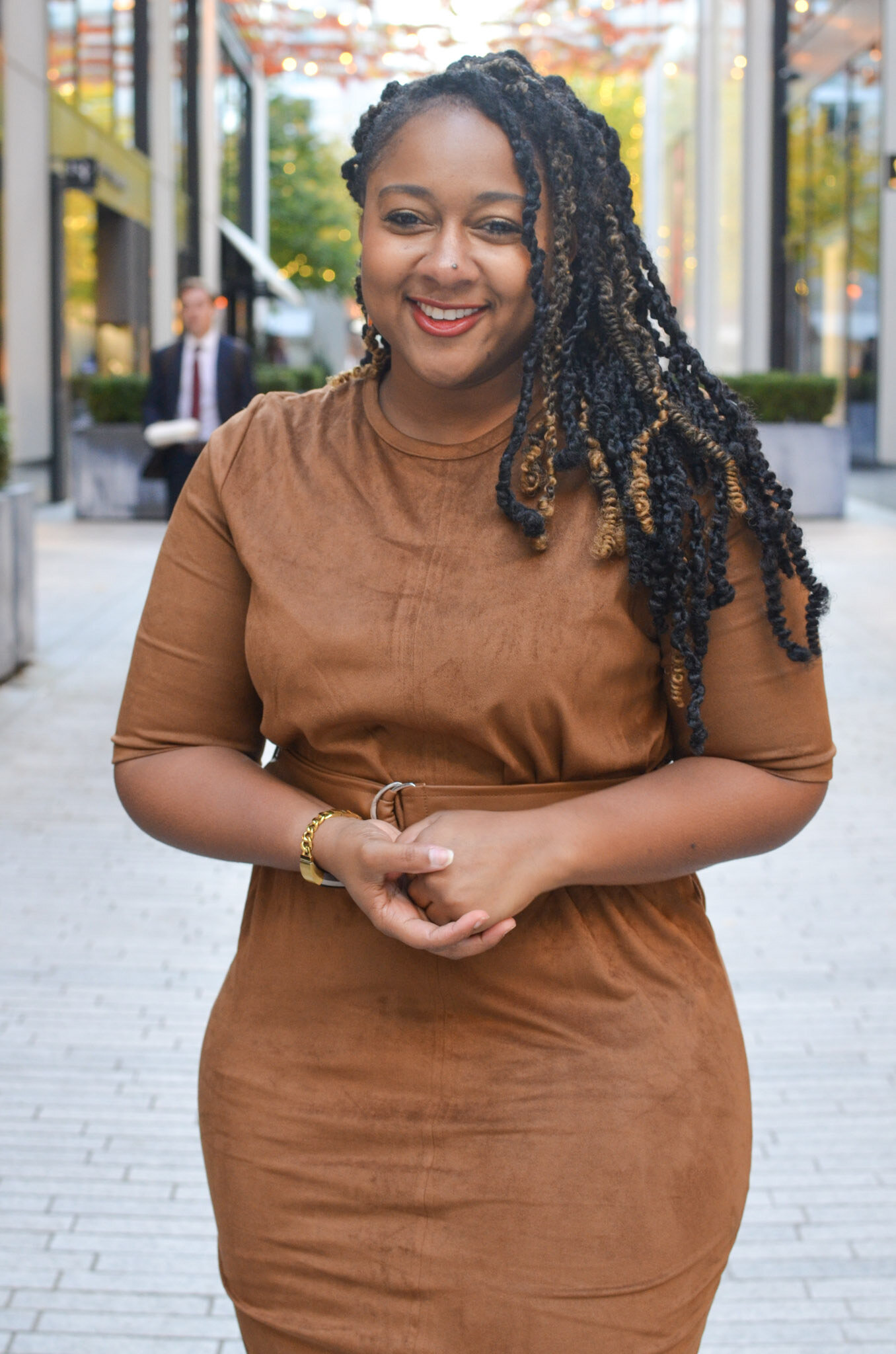Ashley Harrington, Lawyer, Advocate, & Student Debt Expert
Hi, Ashley! Clearly I am very excited to finally sit down with you, and I’m so happy we found the time. Can you please share what you do? You can share whatever and however feels best.
I work at a policy advocacy non-profit called the Center for Responsible Lending, and I am our Director of Federal Advocacy and a Senior Counsel. I manage a lot of our federal strategy, in terms of our outreach to people on the Hill. Or outreach to regulators, or outreach to partners that we are in coalition with, around our policy priorities. It’s everything from weighing in on specific pieces of legislation, providing technical assistance to staffers or partner organizations, to saying whether we endorse or support something, to writing letters and sending an e-blast, organizing briefings and webinars. And just thinking through what will be effective on each particular issue, at any particular time. And one of my big roles is that I’m also the lead on our federal student loan work. That’s my big policy expertise.
Great. Since we’re in the time of a lot of hot debate around federal student loans, can you share a little bit more about your work on that?
I’ve been working on student loans for years but over the past two years or so we have really been gaining traction on the push for broad-based debt cancellation. We think it’s really important, because so many people are struggling with student debt.
Oh, trust – I know. [laughs]
You and I both have student debt, so we know for real for real, how it is. And it’s particularly hard for Black people. People of color in general, but Black people have it the worst. And, I don’t need to go into the reasons why because we already know why. So, we’ve been working on this for a long time. Back in the summer of 2019, we put out a big report with civil rights partners to show the effect that cancellation would have, even at the $10,000 level. This has been a really big campaign. Now, because of the COVID crisis, so many things that were only kind of possible before have been feeling more possible and more urgent. Never before has Congress passed a $2 trillion relief bill, followed by another $1 trillion, and now an additional $2 trillion is headed to the President’s desk, without explicit pay-fors. The rules are out the window, because everything is so crazy. We finally are at the place where people are talking about student loan debt relief in a real way, as a policy, and as a response to COVID. So, that’s really exciting.
This past summer we thought we had a major win, because the House put out their proposal, and it had some cancellation ($10,000) in relief for all borrowers. It didn’t end up making the cut, because we got word from the Hill that lawmakers ended up wanting relief for certain groups of people who are economically distressed, such as people who were in default before the crisis, or had an economic hardship deferment, or who would have been paying $0 payment on income-based repayment. But our position has always been, for one, that’s not the only way you determine whether someone’s in distress. And, also, it doesn’t make sense right now because individuals would have had to qualify for $0 payment, or be in default before March 12th. So, all the people who lost their jobs due to COVID would not get that relief. So, even as a specific response to this public health crisis we are in, it also didn’t make sense. And beyond not making sense, it’s inequitable.
Currently, we have been pushing for executive action on cancellation. President Biden can actually direct the Secretary of Education to cancel debt for federal student borrowers. There has been a major push by Democratic congressional leaders to cancel $50k in student debt per borrower using this authority. We joined with over 325 orgs in support of this resolution. We have done new reports, written op-eds, etc.
We have made a lot of progress but we still have some who don’t think cancellation is necessary. Like, yes, it will cost money but over a long period of time (and federal budget rules have actually already accounted for the loans) and money will also be put back into the economy. Also, so much of this debt is on track to not be repaid because the crisis is that unsustainable. And the economic benefits would be huge, in addition to the racial equity component.
At a high level, beyond Coronavirus, what are some of the long-term implications of student loan debt relief? Particularly for Black people and other POCs.
I mean, student loan debt is really holding us back. Black people are more likely to borrow, borrow more, and take longer to pay it back. So, this is something that is causing intergenerational problems. It’s the product of the wealth gap, and it’s reinforcing it. Because now, you have to go to college, and these are not choices. People act like you made the choice to go to college, but most of the jobs that pay well enough to live comfortably, to have benefits, require at least some college. And college is expensive. So, you have to pay for it. The Pell grant doesn’t pay for much of anything, and if you are a low-income student, your only option is student loans.
And, sometimes your parents have taken out student loans for you. And it used to be that parents could borrow against their house. But after the Great Recession, a lot of our folks don’t have houses, or have very little equity in those houses that they could borrow against. So, they have to take out even more debt. And so, it just builds on top of each other. And the fact that, if we want to be on par pay-wise, with our counterparts, we have to have more education. So, we have to have a grad school education to get what they are paid for just having a bachelor’s – for the same work. So, that’s even more debt. And so, it just builds on top of each other. And then, if you are doing income-based repayment, if you can never pay it off because the terms are 20 or 25 years, that’s like another mortgage. So, if you have this mortgage, how do you get the other mortgage? How do you get an actual house? How do you start an actual business? And then, how does that pass down to your kids when they get ready to go to college? You could realistically still be paying your student debt, while you’re paying for your kids to go to college.
So, this is just a cycle that we can never get out of, and it’s really problematic. It just makes it worse now that we’re in this crisis, where we’re more likely to feel the effects of COVID and the economic crisis we’re in. It’s hit our community harder, like all other social ills do. And when we come out of this, more people are going to be in default, more people are going to be delinquent, and our debt is still going to be there. Unless there is cancellation.
Whew. It’s just so bleak. And exhausting. I want to switch gears a bit. Obviously you’re super passionate about equity. Particularly for Black folks, and the advancement of our community. And so, if you had to track an origin story, how did you come to this work?
It just sort of happened. I went to law school at New York University. I knew that I wanted to do work that I thought would impact people who look like me, and would make their lives and communities stronger or better. At first, that looked like being a public defender, and being a criminal defense attorney. That did not happen. But, I was a policy major in undergrad, so I ended up in policy. I did a fellowship in the governor’s office in New York where I worked on supplier diversity, and workforce diversity. When I left New York, I came to CRL, and this is an economic justice, anti-predatory lending advocacy agency. And so, I think that it became this idea of, the way that we help our community is, we have to have pathways to wealth-building. And traditionally, there are a few ways that people build wealth. They start businesses, they buy houses, and they go to college. Those are traditional pathways to the middle class, into wealth-building that we still don’t have enough access to. And the access that we do have is not actually leading to the outcomes that we want. And so, I think I came to the work from that sense. I think that it makes no sense that we have so many young Black people, who have “good” jobs, and “good” salaries, but still can’t buy houses or stock – because they have a student debt. And so many other things resulting from being the first to make as much as they do, and needing to support other people in their family or whatever the case may be. And so, that’s just the framework that I work in: how do we get to a place where we have our own wealth?
Is there some part of your background, your education, your experiences, that you feel have teed you up to be able to be successful?
I’ve been very privileged, education-wise. I was able to go to a really good school, the University of North Carolina at Chapel Hill, on a full scholarship. So, I didn’t have undergrad debt. My first debt was law school debt. And, I went to a school that has a good loan payment program. I’ve been provided a lot of opportunities from the people that I met, to the jobs that I was able to get. So I’ve always felt very privileged in that sense. I know about student debt from my own experience with student debt. But it wasn’t until I got to CRL, and I really dug into that and was like wow, this is a hot mess. I’m managing. I think we might both say we’re managing our student debt, which is fine. But there are so many people who are not. And it was like a light bulb.
I would also say that the way I think is helpful. I think I look at the world from that perspective of having been a little Black girl who was a Pell grant student. But I also had a scholarship for undergrad, as I said – the Morehead-Cain scholarship which covered everything. I actually went to high school in Chapel Hill, with really wealthy people. And I had a little 1990 Subaru in the parking lot, next to everybody else’s BMWs and brand new cars. But I had a really good education. I got to take algebra in seventh grade. So, there are all these different pieces that I think just impact the way you look at things and how you think about privilege, and your own place. And just feeling very responsible for making space for others who come from similar backgrounds but didn’t have as much privilege.
Right, absolutely. Are you excited about anything in particular, about what you could do, or might do next? Do you have a sense of what you want that to be when you grow up? [laughs]
I think next, I would like to work at a foundation. I think working in a nonprofit, we need funders. Being able to see how, when I get to work with Black program officers, or POC program officers, the way that they can move and influence work as people who have control over how money moves. I’ve seen how impactful that can be. And I think that would be my next step.
But I have complicated feelings. Money is pouring into non-profits like ours. Money is not just pouring into politics. It’s pouring into non-profits. And so, there’s an opportunity beyond just waiting for Congress to do what they need to do. But there’s a part of me that feels that if we took all the money that all these huge foundations, run by wealthy white people, and we just gave it directly to all these Black people and other low-wealth folks, so that they can use it as a down payment to buy a house, or start a business, or invest. That would move the scale so much faster than the incremental change that we’re working for, in policy. So, I feel very, very frustrated a lot of the time, because there are resources that could fix these problems, but we are working in a system that’s slow and resistant to change because of course, the system is working as it was meant to work.
I think the work I’m doing now is important. I love it. I hope I’m having an impact. I hope that it is at least moving the needle some. But I can’t get over the feeling that there is a much more efficient, faster way to move this needle. If we, as an entire society, were actually interested in moving the needle, and not maintaining the status quo.
Word. So let’s end on a high note. What are you most proud of?
Right now, I’m most proud of the work I’ve been able to do during the crisis on federal small business relief. We have been working to increase equity and transparency in the Paycheck Protection program since it was first started last year. The PPP is a huge, now $800+ billion program that was/is shaping up to be basically a huge wealth transfer. With each new round of the program, our advocacy has helped make the program a little more equitable. This can mean the difference for so many Black and brown business owners and our communities. We need to save every single business that we can and that means this program needs to work for them.
Please share this post with a friend, and follow us at @BlackWomenWorkIG!

